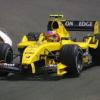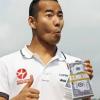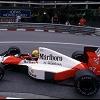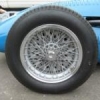Then I'd probably say 2007 to 2013. And the big change to hybrids and Mercedes domination started in 2014 and brings us to the present. This gives us:
1974-1978
1979-1982
1982-1994
1994-2006
2007-2013
2014-present
I included 1982 and 1994 in both the adjacent eras, because arguably the era changed mid-year (especially with losing Villeneuve and Senna).
Two eras have the longevity of 12 years, while the first ones have 5 and 4 years.
Personally I have felt 1984 is more of a tipping point for change than 1982. Why? Because 1984 saw (McLaren) domination. This was the year when the interregnum of F1 ended. Renault and Brabham stopped being top teams. McLaren and then gradually Williams, Ferrari and Benetton emerged as the only teams, who could win championships for a long time.
Also I'd end the Schumacher era after 2004, because Alonso/Renault starting to win championships was a pretty big shift.
I guess the following could be an option:
1974-1983 : era of interregnum. No clear best, almost each year sees different champions, big performance fluctuations.
1984-1993: establishment of F1 elite. McLaren and Williams winning with Ferrari occasionally challenging.
1994-2004: the era largely defined by Schumacher (either in Benetton/Ferrari) versus Adrian Newey teams (Williams/McLaren). Schumacher had different challengers as drivers throughout that period.
2005-2013: the emergence of new forces, teams and drivers. Renault, later Brawn and Red Bull. Thrice we get new youngest champions of all times.
2014-...: The return of the unbeatable Silver Arrows, which defined the 30's and 1954-55. This time with much greater longevity.

























